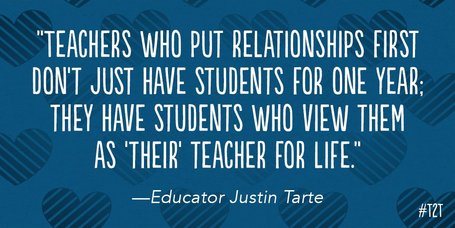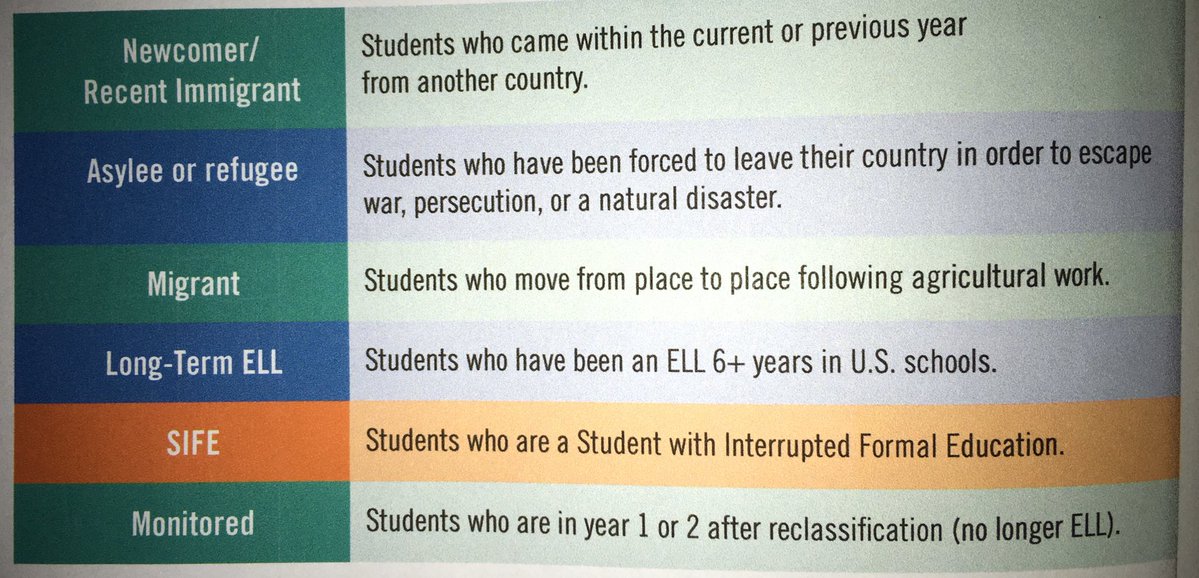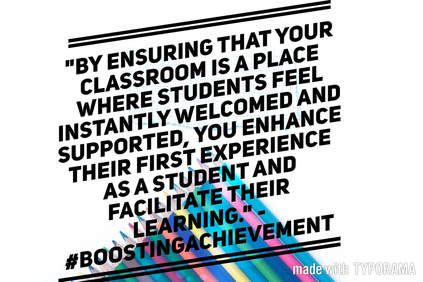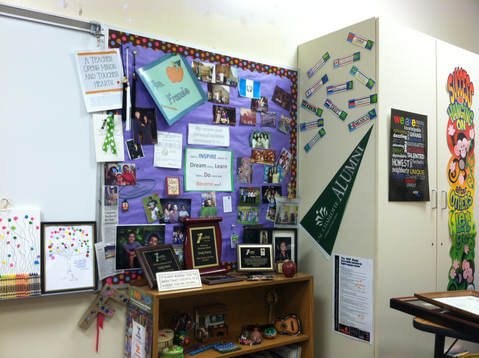|
Part One: Working with Students Who are SIFE
I don't know about you, but I want my students to remember me as their teacher for a life time. However, in order for this to happen, I need to make sure I strengthen my relationship with each and every one of my students. And relationship building starts by learning students background.
Let me start by emphasizing how important it is to know our students' background because each category of language learners is different and each requires a unique level of support. Here is an article I found very relevant to this topic: Good Teachers Embrace Their Students' Cultural Background. Here I learned that as teachers, we tend to use our own experiences when planning the lessons we teach, but then students cannot create connections because is not relevant for them. However, when we know students' background, their story, their struggles, their past, we would lean toward activities and materials that will support students in making connections.
Boosting Achievement does a fantastic job highlighting and providing awareness of the many different categories our language learners' background. Just take a close look at the chart below.
The point I want to bring up with this chart is that not all language learners in your class fall under one category. Our students come to us with a story, with a personal and unique background, and in order for them to be successful, they must receive the appropriate support.
Take my experience as a language learner high school student for example. When I first came to the United States my teacher needed to know that I was a 'Newcomer/Recent Immigrant' and a 'SIFE' student. Not only was I learning the language but I had also missed a lot of school years in my country which put me far behind classmates my age. When interested in supporting L1 (native language) it is imperative for teachers to know the student's educational background. And to find this information could be as simple as asking the parent. Build a relationship with parents and students to provide what is best for the student to be successful in school and in life.
I believe that ALL students need our support. However, I want you to think about English language learners who are struggling academically. Why? The answer is simple: Achievement Gap! I strongly believe that the achievement gap exists among our ELs because we are not targeting and/or providing the appropriate support.
Tips to support newcomers/SIFE students:
Boosting achievement does the following recommendations for SIFEs' needs:
I also have a few recommendations for newcomer students: here.
Watch the video below by Teaching Channel to see how newcomers and SIFE students interact through the use centers to accelerate reading development. This video clearly shows that our newcomers/SIFEs have the ability and "know how to" when the opportunities as presented.
Part I has a heavy focus on Cultural Responsive Teaching. This is super important and a very hot topic in education right now. I believe is due to the growing diversity found among students in our classrooms. Part of being culturally responsive is building a relationship with our students, so last week, our focus was on getting to know our students and building strong relationships by valuing our students' stories. However, I see it as taking a step further...When we know our students' background and care about who they are, it'll reflect in what our classrooms look like. What I mean is that knowing your students will make you want to provide a place where they feel safe, comfortable, and familiar to them. Making sure our classroom decor mirrors our students' culture and background.
Boosting achievement provides great tips such as desk arrangements, and labeling school items in multiple languages. Here is another article I found helpful on providing classroom setup strategies. It's imperative to consider these tips that facilitate learning ultimately optimizing language learning and academic achievement. Self-Advocacy
Carol shares a fascinating story of a SIFE student who had to advocate for himself when he noticed he was not getting what he needed. I believe it is necessary for our students, Kindergarten - 12th grade, be able to advocate for themselves. Students will at one point in their education encounter educators or school personnel who will instead of supporting students are obstacles for students' success. That is the point when students need to stand for what they believe it is best for themselves. I found this link very helpful on tips and steps to follow on teaching students to self- advocate.
Osama is now my hero! He taught me that as an educator, there should be a level of 'shame' when I don't take the time to listen to students' needs and advocate on their behalf. You see, as an educator, you can't be both; You either are supportive or an obstacle. Which are you? If you are reading this, is because you care about your students and want to support them. Thank you, #eduHero!
Accessing SIFEs' English Proficiency and Background Knowledge
This section really made think about ways I can gather my newcomers' background information to better serve them. In Cabarrus County, we are very fortunate to have the ELLevation platform that houses our ELs' demographic information as well as their language proficiency levels. This is a system with easily accessible data as well as targeted instructional language and content strategies.
However, I noticed that there is no place for us to flag if our student is a refugee student. While discussing his topic with our county's ESL counselor, I realized that the only way for teachers to know if a student is SIFE is to share it with the teacher. But what if the student moves to another school? Shouldn't this information be available as part of their demographic information for new teachers' easy access? This thought is just one of the thoughts Boosting Achievement is making me realize as a read through. Another idea I have after reading the "Refugee-Focused Intake Process" is to create a spreadsheet with some of the components Texas uses for their "Intake/Pre - Assessment Form". I am fascinated with the three focused components: Affective, Linguistic, and Cognitive. As an ESL teacher, my focused needs to go beyond whether students speak English or not. But also know their cognitive skills levels in math and reading, and/or issues that could affect them psychologically, mentally or emotionally. I can't wait to see what else I learn in the coming chapters. I am definitely betting my teaching pedagogy with Boosting Achievement!!
If you are interested in reading my previous blogs on Boosting Achievement book club notes, just follow this link!
Don't forget to check you Carol's blog. Here is her blog for Boosting Achievement Week 2
Thank you for reading!
1 Comment
|
Categories
All
Archives
May 2024
|



